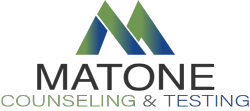LGBTQIA+ Affirmative Therapy
It is essential for people to feel comfortable with who they are and to be able to express their most authentic selves in order to access a sense of wellbeing. While our society has in some ways become more inclusive of non-normative gender and sexuality identities, and while the LGBTQIA+ (lesbian, gay, bisexual, transgender, queer or questioning, intersex, and asexual) community has become more visible in recent years, individuals in this community still experience profound marginalization and discrimination. This discrimination faced at both personal and societal levels contributes to higher rates of mental health challenges. Matone Counseling and Testing affirms and embraces the immense variety of experiences and expressions within the LGBTQIA+ community. We have several clinicians who are experienced in supporting LGBTQIA+ individuals, some of whom are also members of this community, in their journey toward emotional, mental, physical, relational, and spiritual fulfillment.
The LGBTQIA+ community represents a significant portion of the US population. As of 2022, Gallup reported that 7.2% of the US adult population identifies as LGBTQIA+, which is double their reported percentage from a decade ago. Gallup’s findings have reflected a steady increase of this demographic with each generation (with Gen Z reporting the highest percentage of LGBTQIA+ identification compared to prior generations), along with a majority identification (58.2% of LGBTQIA+ adults) of bisexuality. Despite these growing numbers of people who publicly identify as LGBTQIA+, people within this community experience personal challenges of anxiety, depression, addiction, and self-harm, as well as societal challenges such as unemployment, lack of healthcare, and homelessness at disproportionate rates. Individuals in this community who also hold other marginalized identities with regard to race, ethnicity, age, class, ability, and more experience even higher rates of mental health challenges along with more compromised access to necessary resources.
The Human Rights Campaign (HRC) Foundation’s most recent analysis via their Behavioral Risk Factor Surveillance System reports the following statistics:
MENTAL HEALTH IN LGBTQIA+ ADULTS
- 59% of LGBTQIA+ adults and 60% of transgender adults currently experience poor mental health
- Due to compromised mental and physical health, 19% of LGBTQIA+ adults and 28% of transgender adults report experiencing sustained periods of time where they were unable to do routine activities including self-care, work, and recreation as compared to 15% of non-LGBTQIA+ adults
- Only 39% of LGBTQIA+ adults report having an official diagnosis of a depressive disorder despite the majority of the community reporting depressive symptoms, and only 29% of LGBTQIA+ adults of color have received an official diagnosis for a depressive order
MENTAL HEALTH IN LGBTQIA+ YOUTH
- 54% of LGBTQIA+ youth and 61% of transgender and questioning youth experience symptoms of depression, compared to 29% of non-LGBTQIA+ youth
- Only 41% of LGBTQIA+ youth have received psychological or emotional counseling; and only 35% of LGBTQIA+ youth of color have received emotional counseling
- 35% of LGBTQIA+ youth, 45% of transgender youth, and 40% of questioning youth have seriously considered attempting suicide, compared to 13% of non-LGBTQIA+ youth
- LGBTQIA+ youth who have at least one accepting adult in their life were 40% less likely to attempt suicide
THE INTERSECTION OF MENTAL HEALTH AND SOCIETAL FACTORS FOR LGBTQIA+ PEOPLE
- 18% of LGBTQIA+ adults and 28% of LGBTQIA+ adults of color are currently without health insurance (compared to 8% of all adults) and 24% have needed to see a doctor but couldn’t due to costs
- 9% of LGBQ people and 21% of transgender people reported receiving harsh or abusive language from a doctor or other health care provider while receiving care
- 22% of LGBTQIA+ people are living in poverty compared to 16% of non-LGBTQIA+ people
- In 2019, 17% of hate crimes in the US were motivated by sexual orientation, the third highest motivation after race and religion. Gender identity based hate crimes rose by 23% from 2018.
- 30% of youth in foster care and 40% of unhoused youth identify as LGBTQIA+
- 31% of LGBTQIA+ youth, 43% of transgender youth, and 40% of questioning youth have been bullied at school, compared to 16% of their non-LGBTQIA+ peers
- Intimate partner violence has affected nearly half of LGB women and 54% of transgender and non-binary people
Living in a heteronormative and cisgenderist society places individuals who fall outside of these norms in a marginalized social location where isolation, rejection, shame, and personal and/or interpersonal harm can become the overarching experience. We understand that many individuals are living in heightened fear, unsafety, and uncertainty as new anti-LGBTQIA+, and specifically anti-trans, legislation continues to be introduced at local and national levels. (Read about the Human Rights Campaign’s National State of Emergency for LGBTQ+ Americans here). If you are struggling, you are not alone. We are here to help.
Matone Counseling and Testing celebrates the strengths, resilience, and creativity of individuals who live with LGBTQIA+ identities and experiences, and we understand that no two lived experiences will be the same. We acknowledge that the mental health field has a history of pathologizing homosexuality and transgender identities. We believe there is nothing inherently wrong with you. Our clinicians are here to support you to live your most authentic and fulfilling life.
People seeking LGBTQIA+ affirmative therapy might be looking for support with any of the following:
- Increasing your sense of confidence, self-esteem, and self-acceptance
- Coping with the impacts of minority stress
- Relationship difficulties that may or may not be related to your LGBTQIA+ identity
- Support coming out to family, friends, partners, colleagues, etc.
- Navigating significant life changes as a result of coming out at any stage of life
- Endorsement for gender-affirming surgery, hormones, or puberty blockers
- Identity work/exploring questions you might have about your sexuality or gender identity
- Healing from religious trauma
- Working through internalized homophobia and/or transphobia
- Creating healthy boundaries with family and/or community
Matone Counseling and Testing offers individual, couple/relational, and family therapy for people in the LGBTQIA+ community. When you choose to work with one of our clinicians, you can trust you’ll be met with compassion, curiosity, and a genuine desire to support you.
RESOURCES
Human Rights Campaign: https://www.hrc.org/resources
The nation’s most prominent civil rights organization dedicated to fighting for LGBTQIA+ equality. Their website provides resources on a myriad of topics, research findings, and campaigns at both local and global levels, and also offers content in Spanish.
The Trevor Project: www.thetrevorproject.org
The country’s leading organization in suicide prevention for LGBTQIA+ young people. In addition to phone and text support for crisis/suicide prevention, their website also offers a multitude of informational resources, connection to affirming counselors, and access to an international community of LGBTQIA+ young people (ages 13-24).
YOUTH OUTRIGHT https://www.youthoutright.org/
National non-profit focusing on queer and trans advocacy through a gender and racial justice lens for young people ages 11-24. They offer weekly virtual groups, an annual GSA summit, emergency funds, and a variety of online resources for LGBTQIA+ youth.
TPOCC (Trans People of Color Coalition) https://transpocc.org/
The nation’s only social justice organization focusing specifically on advocacy work for transgender people of color.
TRANSGENDER LAW CENTER https://transgenderlawcenter.org/about/
The largest national trans-led advocacy organization focusing on policy change and legal expertise for transgender individuals.
PFLAG – https://pflag.org/find-resources/
The nation’s oldest and largest organization dedicated to advocacy for LGBTQIA+ individuals and their loved ones. Whether you or a loved one identify as LGBTQIA+, you’ll find supportive resources on their website.
GLSEN (Gay, Lesbian, and Straight Education Network) https://www.glsen.org/
National non-profit organization connecting students and educators to help build safe and inclusive school environments. Their website offers resources for both students and educators to create change in their school communities.
GLAAD (Gay & Lesbian Alliance Against Defamation) https://glaad.org/
National non-profit organization focused on media accuracy, accountability, visibility, and inclusivity for the LGBTQIA+ community.
LGBTQIA+ Crisis/Suicide Prevention Hotlines
*Not LGBTQIA+ specific but LGBTQIA+ inclusive
TRANS Individuals
Trans Lifeline (staffed by transgender individuals) – 877-565-8860
LGBTQIA+ Youth
LGBT National Youth Talkline – 1-800-246-7743
TrevorLifeline – 1-866-488-7386
TrevorText – Text START to 678-678
The Steve Fund Crisis Textline* – Text STEVE to 741741
LGBTQIA+ Adults
Lifeline* – 1-800-273-8255
Crisis Text Line* – Text HOME to 741741
LGBTQIA+ Elders
SAGE – 877-360-5428 (National LGBTQIA+ Elder Hotline)
QTBIPOC Adults
BlackLine – 1-800-604-5841 (24/7 text or call hotline prioritizing BIPOC support and operating through an LGBTQIA+ Black Femme Lens)
DeQH – 908-367-3374 (Helpline for South Asian/Desi LGBTQIA+ individuals, families, friends)
All Ages
LGBT National Help Center – 1-888-843-4564




